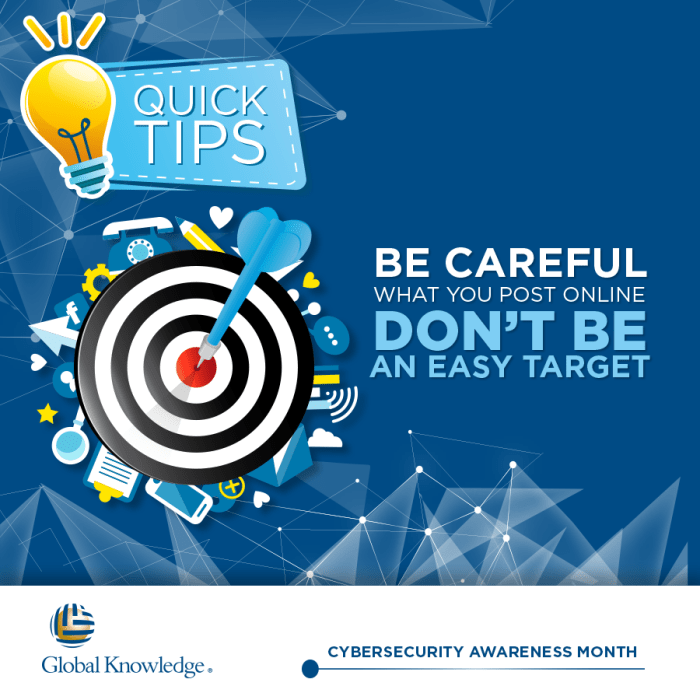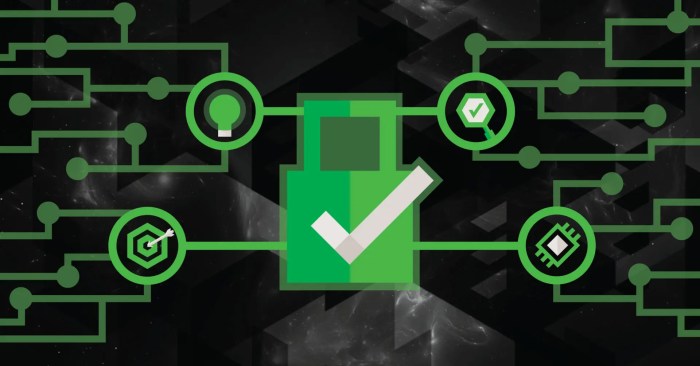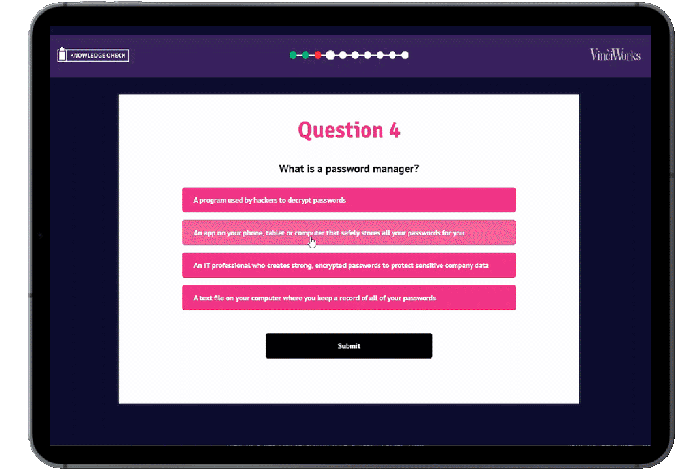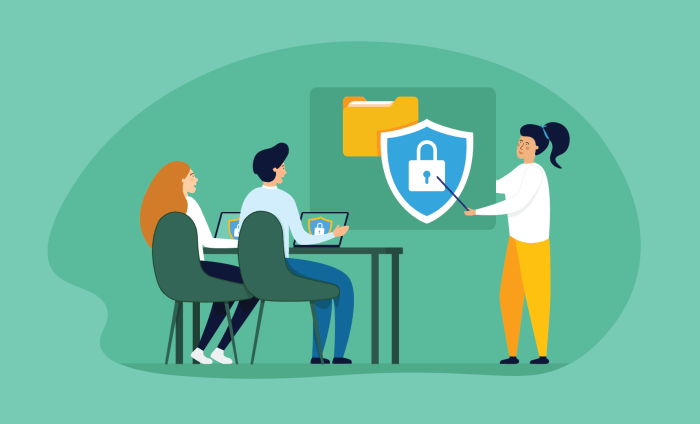The Cyber Awareness 2024 Knowledge Check sets the stage for an engaging exploration of cybersecurity awareness, equipping readers with a comprehensive understanding of its fundamental concepts, best practices, and significance. This knowledge check empowers individuals to navigate the ever-evolving digital landscape with confidence and resilience.
By delving into the core principles of cybersecurity, the knowledge check provides a roadmap for identifying and mitigating cyber threats, fostering a culture of security consciousness within organizations and communities. Through interactive assessments and practical guidance, participants gain invaluable insights into the latest cyber risks and effective defense mechanisms.
Cyber Awareness Knowledge Check 2024 Overview

The Cyber Awareness Knowledge Check 2024 is an annual assessment designed to evaluate the cybersecurity knowledge and awareness of individuals within an organization.
Its primary objectives are to:
- Identify areas where individuals need additional training and support.
- Measure the effectiveness of cybersecurity awareness programs.
- Enhance the overall cybersecurity posture of the organization.
Target Audience
The Cyber Awareness Knowledge Check 2024 is intended for all employees, contractors, and other individuals who have access to the organization’s network and systems.
Format
The assessment consists of a series of multiple-choice questions covering a range of cybersecurity topics, including:
- Phishing and social engineering
- Password security
- Data protection
- Incident response
- Mobile security
Individuals will have a limited amount of time to complete the assessment.
Key Concepts and Domains

The Cyber Awareness Knowledge Check 2024 encompasses a comprehensive range of core concepts fundamental to understanding and mitigating cybersecurity risks. These concepts are organized into logical domains, each addressing a specific aspect of cybersecurity knowledge.
The primary domains covered in the Knowledge Check include:
- Cybersecurity Basics:This domain provides a foundation for understanding cybersecurity concepts, including threat actors, attack vectors, and common security breaches.
- Risk Management:This domain emphasizes the importance of identifying, assessing, and mitigating cybersecurity risks to protect sensitive data and systems.
- Incident Response:This domain focuses on the process of responding to and recovering from cybersecurity incidents, including containment, eradication, and remediation measures.
- Cybersecurity Best Practices:This domain covers essential cybersecurity practices for individuals and organizations, such as password management, software updates, and phishing awareness.
- Emerging Technologies:This domain explores the latest advancements in cybersecurity technologies and their implications for protecting digital assets.
Study Materials and Resources

To effectively prepare for the Cyber Awareness Knowledge Check 2024, it is crucial to utilize comprehensive study materials and resources. These resources provide a structured and informative approach to enhance your knowledge and understanding of cybersecurity concepts.
The following list presents a variety of study materials and resources designed to support your preparation:
Online Courses, Cyber awareness 2024 knowledge check
- Cybersecurity Awareness Training:This online course offered by the SANS Institute provides an overview of cybersecurity fundamentals, including topics such as phishing, malware, and social engineering.
- Cybersecurity Awareness for Employees:This course from LinkedIn Learning covers essential cybersecurity concepts, best practices, and strategies for protecting personal and organizational data.
- Cybersecurity Awareness for the Modern Workforce:This Coursera course emphasizes the importance of cybersecurity awareness in today’s digital landscape and provides practical guidance for staying safe online.
Training Modules
- Cybersecurity Awareness Module:The National Institute of Standards and Technology (NIST) offers a free online module that covers cybersecurity basics, including threats, vulnerabilities, and mitigation strategies.
- Cybersecurity Awareness Training for Employees:This module from the Information Security Forum (ISF) provides interactive training on various cybersecurity topics, including phishing, ransomware, and data breaches.
- Cybersecurity Awareness Training Kit:The Cybersecurity and Infrastructure Security Agency (CISA) provides a comprehensive training kit that includes modules on topics such as password security, social media awareness, and mobile device security.
Practice Tests
- Cyber Awareness Knowledge Check Practice Test:This practice test from the SANS Institute simulates the actual Knowledge Check and provides immediate feedback on your performance.
- Cybersecurity Awareness Practice Test:This practice test from LinkedIn Learning assesses your knowledge of cybersecurity concepts and provides detailed explanations for each question.
- Cybersecurity Awareness Quiz:This quiz from the Information Security Forum (ISF) tests your understanding of cybersecurity risks and best practices.
Exam Structure and Content: Cyber Awareness 2024 Knowledge Check

The Cyber Awareness Knowledge Check 2024 is an online assessment designed to evaluate individuals’ knowledge and understanding of cybersecurity concepts and best practices.The exam comprises 15 multiple-choice questions that cover various cybersecurity domains, including phishing, malware, password security, and social engineering.
Test-takers are given 30 minutes to complete the exam, which is scored on a pass/fail basis.
Question Types and Difficulty
The exam questions vary in difficulty, with some questions being more straightforward and others requiring a deeper understanding of cybersecurity concepts. The questions are designed to assess individuals’ ability to identify and mitigate cybersecurity risks, protect sensitive information, and maintain a secure online presence.The
exam also includes scenario-based questions that require test-takers to apply their knowledge to real-world situations. These questions are designed to evaluate individuals’ critical thinking and decision-making skills in a cybersecurity context.
Best Practices for Preparation
Effective preparation for the Cyber Awareness Knowledge Check 2024 requires a comprehensive approach that encompasses efficient study techniques, effective time management, and thorough review of materials.
Study Techniques
- Active Reading:Engage with the study materials by actively reading, highlighting, and taking notes.
- Spaced Repetition:Review the material at increasing intervals to enhance retention and recall.
- Practice Questions:Solve practice questions and mock exams to assess understanding and identify areas for improvement.
Time Management
Allocate dedicated study time each day, breaking down the material into manageable chunks. Prioritize topics based on difficulty and allocate more time to challenging concepts.
Note-Taking
- Effective Note-Taking:Utilize techniques like the Cornell Method to create organized and concise notes that aid in recall.
- Visual Aids:Incorporate diagrams, charts, and other visual aids to enhance understanding and simplify complex concepts.
- Review and Revision:Regularly review and revise notes to reinforce learning and identify areas for further clarification.
Assessment and Scoring

The Cyber Awareness Knowledge Check 2024 assessment process involves taking an online exam that evaluates an individual’s understanding of cybersecurity concepts and best practices.
The scoring system for the exam is based on the number of correct answers out of the total number of questions. The passing score is typically set at 80% or higher, indicating a strong grasp of the subject matter.
Passing and Failing Criteria
- Passing the assessment requires achieving a score of 80% or higher, demonstrating a proficient understanding of cybersecurity principles and practices.
- Failing the assessment indicates a need for further education and training in cybersecurity, as the individual’s knowledge is below the established threshold.
Importance and Benefits

Completing the Cyber Awareness Knowledge Check 2024 is essential for individuals and organizations alike. It not only enhances personal cyber awareness but also contributes to a more secure cyber environment for all.
Demonstrating cyber awareness through the Knowledge Check has several benefits:
Benefits to Individuals
- Enhanced understanding of cybersecurity threats and vulnerabilities.
- Improved ability to protect personal devices and data from cyberattacks.
- Increased confidence in using technology securely.
Benefits to Organizations
- Reduced risk of cyber incidents and data breaches.
- Improved compliance with cybersecurity regulations.
- Enhanced reputation as a cybersecurity-conscious organization.
FAQ Overview
What is the purpose of the Cyber Awareness 2024 Knowledge Check?
The Cyber Awareness 2024 Knowledge Check is designed to assess individuals’ understanding of cybersecurity concepts and best practices, empowering them to make informed decisions and protect themselves and their organizations from cyber threats.
Who should take the Cyber Awareness 2024 Knowledge Check?
The knowledge check is beneficial for anyone seeking to enhance their cybersecurity awareness, including individuals in all roles and industries, students, and professionals.
What are the benefits of completing the Cyber Awareness 2024 Knowledge Check?
Completing the knowledge check demonstrates an individual’s commitment to cybersecurity and provides a baseline understanding of essential cybersecurity principles, enabling them to contribute to a more secure digital environment.